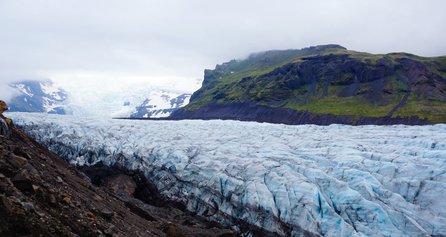Rannsóknarsetur
Rannsóknasetur um smáríki, Rannsóknasetur um norðurslóðir og Höfði friðarsetur Reykjavíkurborgar og Háskóla Íslands starfa innan vébanda Alþjóðamálastofnunar.

Höfði friðarsetur
Lesa meira
Rannsóknasetur um smáríki
Lesa meira
Rannsóknasetur um norðurslóðir
Lesa meiraVerkefnin
Alþjóðamálastofnun beitir sér fyrir auknu samstarfi milli fræðimanna, atvinnulífs og opinberra aðila á sviði alþjóðamála og gengst fyrir ráðstefnum, umræðufundum og fyrirlestrum um efni sem tengjast starfssviði stofnunarinnar. Stofnunin er vettvangur fyrir fræðileg alþjóðasamskipti og þverfagleg þjónustuverkefni fyrir atvinnulíf, fyrirtæki og stofnanir.
Útgáfa

Small elite network and less formal governance structure: Efficient knowledge sharing and rapid policy responses?
M. Ackrén, N. Hokkala, P. Lægreid, E. Palmujoki, A. Trengereid, Á. E. Bernhardsdóttir, M. Koraeus, R. Olavson, B. Thorhallsson and K. Vrangbæk (pages 423-440)
This paper analyzes whether the seven Nordic countries, by virtue of their limited administrative size and less formalized governance arrangements, were particularly well-suited to fostering rapid …

Cooperation problems and bureaucratic infighting in small states: Lack of planning and unclear rules?
M. Ackrén, N. Hokkala, P. Lægreid, E. Palmujoki, A. Trengereid, Á. E. Bernhardsdóttir, M. Koraeus, R. Olavson, B. Thorhallsson and K. Vrangbæk (pages 409-422)
This comparative study of the seven Nordic countries supports the assumption that cooperation problems and bureaucratic infighting in small states during the early stages of the …

The effect of size and the Nordic states’ responses to the COVID-19 pandemic: Reactive or proactive?
M. Ackrén, N. Hokkala, P. Lægreid, E. Palmujoki, A. Trengereid, Á. E. Bernhardsdóttir, M. Koraeus, R. Olavson, B. Thorhallsson and K. Vrangbæk (pages 389-408)
This paper examines whether the small size of the public administration of the seven Nordic countries affected the nature of their crisis responses, focusing on the …

Introduction: Nordic countries’ crisis management of the COVID-19 pandemic: The effect of size
The effect of size – Á. E. Bernhardsdóttir and B. Thorhallsson (pages 375-388).

A Special Section - The Nordic Countries’ crisis management of the Covid-19 pandemic: The effect of size
Guest Editors: Ásthildur Elva Bernhardsdóttir and Baldur Thorhallsson in the journal Small States & Territories (ISSN: 2616-8006), Vol. 8, No. 2, November 2025, (pages 375-440).
This special section in SST deals with size-related challenges and opportunities in the seven Nordic countries (Sweden, Norway, Denmark, Finland, Iceland, Greenland and the Faroe …

RECLAIM POLICY PAPER ON NEW AND STUDENT- CENTERED EDUCATION TOOLS
Authors: Federico Castiglioni (IAI) - Alessia Chiriatti (IAI)
This policy brief examines the relationship between Citizenship Education and learning mechanisms in the postfactual age, with a specific focus on the European dimension. In the recent years, the debate among scholars and practitioners has intensified around how to address the multiple …

Report | A Guide for EU Citizens Addressing the Risks of Disinformation
Authors: Elena García-Guitián (Universidad Autónoma de Madrid) & Luis Bouza-García (Universidad Autónoma de Madrid)
This guide helps citizens understand why the EU acts against disinformation, how these actions protect democracy, and what each of us can do to take part.
European federalists have long wished for the EU to be taught in schools, but the real chance for Europeanised education may lie in fostering critical thinking skills in school.
In this episode, we explore whether citizenship education should be a subject in European curricula, and how EU-level coordination can support …









